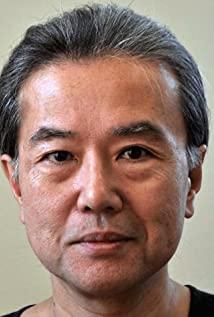After watching this movie twice in a row, I wanted to dig deeper into the comments, but what I wrote down turned into a plot synopsis. But if I want to come to the same movie, what I see is not the same as what others see. Serious spoilers, if you don't like it, don't enter:)
The protagonist Virgil is a top auctioneer, living a high life, with drivers, servants, mansions, and a VIP member of top restaurants. However, the experience of growing up in an orphanage as a child not only allowed him to master the top oil painting restoration and appreciation skills, but also made him have a fear of women, and he could not even face the eyes of the opposite sex. Having lived alone for decades, he has never been able to establish a normal intimacy with a woman, and is still a virgin in his 60s. In his own words, he was afraid of not being able to understand women.
The details of the gloves in the film also reflect the inner contradiction of the protagonist from the side. Virgil always wore gloves, and there was an entire cabinet dedicated to gloves in the house. He wears gloves while eating, working, and even shaking hands, using gloves as a barrier to avoid excessive contact with the outside world. This tendency can be seen in the dialogue between him and Claire at the beginning of the film:
Claire: "I don't talk to people very often"
Virgil: "Trust me this can be a good thing, talking to people is very dangerous."
Art, however, is the exception, and for Virgil, art is more accessible than man. Only when he touched the collected portraits of women did he take off his gloves and rub them. Taking advantage of the convenience of work, with his excellent vision and artistic sensitivity, he has collected a large number of portraits of women through his partner Billy. There is a special secret room in his mansion, and the walls are covered with these portraits from various auctions. Just like an old otaku who is obsessed with the second dimension, whenever it is quiet at night, Virgil likes to sit quietly in a secret room of the mansion, imagining himself being watched by the ladies on the surrounding walls, all of whom are only focused on him on one person.
The film takes one and a half minutes to show the sight of the portrait of the woman on the wall. Virgil, who is deeply immersed in the sofa, looks weak and fragile, and the angle of the sight line of the picture just converges on the position of the sofa, suggesting that he has always lacked love. The expression on the expression of the old virgin Virgil at this time clearly revealed the desire for the opposite sex and the desire for warmth. With trembling and fear, he longed for the care of women, but at the same time, he was critical and tasteful of works of art, which made him a harsh and indifferent person.
As an auctioneer, Virgil is best at distinguishing authenticity. He can always notice details that others have not noticed and uncover the truth of the work. This also led to Virgil's special interest in exploring the mysterious. His aesthetic orientation can be seen from his evaluation of his old partner Billy: "Knowing how to use a paintbrush is not enough to be an artist, you need something mysterious, dear Billy, you have never had it. ."
Billy, an old friend, has worked with Virgil for many years and sees everything through him. Billy doesn't really have any talent for drawing, but he is a genius at manipulating human nature. He orchestrated a deception, which made Virgil, like Truman, deeply intoxicated in the false love growth reality show.
Ordinary things can't arouse Virgil's enough interest, on the contrary, it is a little detail that is skillfully woven, which makes people feel like following the clues to solve the puzzle, which can attract him to stick closely.
Apparently Billy faked the portrait of Claire's mother, and the composition was copied from the portrait of Jansky he had taken for Virgil.
At a time when Virgil wasn't deeply emotionally involved with Claire, Billy's team used spare parts from Vaucanson's antique robots to keep Virgil's interest in the auction. Virgil kept collecting robot parts in the process of sorting out the auction items, and handed them over to Robert to try to assemble and restore them. At the same time, through this process Virgil constantly updates Robert on the progress of his relationship with Claire. It is equivalent to saying that the "actors" constantly feedback the progress of the plot and their own needs to the "writing team", and the "writing team" adjusts the development of the "plot" in time according to the situation. The assembly process of Vaucanson's antique robot can be said to be one of the main lines of the progress of the plot. In the second half of the film, when Virgil became suspicious of Robert, the "writing team" used a large part of the antique robot to maintain the connection between the two.
As soon as Claire appeared, Virgil aroused enough curiosity. First, she repeatedly missed her appointment, until Virgil found that she had always stayed in the house, only separated from him by a wall. Then, the two of them exchanged several times without seeing anyone, separated by a wall. After learning about Claire's "illness", Virgil seemed to see himself from Claire's experience, and the sense of dependence gradually gave birth to the spirit of a savior. A small quarrel across the wall, as a small climax, brought the relationship between the two closer. After that, the old man was in the secret room, facing all the portraits, and easily called Claire, which showed that he had gradually let go of his guard. At this time, Virgil's curiosity about Claire also swelled to the extreme, and he did something that seemed demeaning and reckless at his age - peeping. It's a brilliant scene in which an elderly virgin hides nervously behind a statue of a half-naked lover, peering at the young woman. After peeping, he even dialed Claire's phone tactfully, then quietly escaped while she was in the bedroom.
If the first voyeur was out of curiosity, then the second voyeur was probably out of desire. I'm guessing the first peep was something that the "writing team" didn't expect. After Virgil told Robert, the "crew" immediately adjusted, so there was another quarrel, ending with Claire's confession of dependence on Virgil. The second time he peeped, Virgil was accidentally discovered. In the middle of the night, this elderly man was sweating profusely running on a deserted street. The director wanted to say that no matter how old he was, men would still be restless because of desire. ? As far as Virgil is concerned, add a little virgin shame to that. Fortunately, this kind of fearful and reckless behavior was finally exchanged for the treatment of getting along with Claire face-to-face. This exclusive feeling made Virgil's feelings for Claire quickly warm up, and the progress of the two was getting closer and closer as he expected. .
Just when Virgil felt that everything was getting better and better, Claire suddenly disappeared, and this may be the last chance the "writing team" gave him. Virgil, who has always been neat and orderly and pays attention to his appearance, is in chaos after Claire disappears. With messy hair and stubble all over his face, he stood on the auction table and spoke incoherently. Before Claire disappeared, Robert once asked Virgil, "If you had to choose between an antique robot and Claire, which would you choose?" Virgil didn't answer, but went to buy a ring. After Claire's disappearance, Virgil didn't mind that he screwed up the auction, which is equivalent to explaining his choice with actions. Billy, his old friend, reminded him of his conscience: "Human feelings are like works of art. They can be faked and faked. They are real, but they are fake. Anything can be faked, Virgil. , joy, pain, hate, sickness, healing...even love." Emotions are like work of art. They can be forged they seem just like the original but they are forgery.Everything can be fake Virgil: joy, pain, hate , illness, recovery... even love.
After the final test, Virgil finds Claire, and he listens to Claire tell her story and spends the night with her for the first time. Virgil, who finally got rid of his old virginity, went to share his joy with Robert. Perhaps subconsciously he was uneasy about this happiness, and he discussed with Robert whether he believed that love could be faked. Love is like an auction, Robert said, where the highest bidder can have the greatest love in the world.
Virgil went abroad to complete the last auction of his career, and Claire had agreed to live with him. He thought he had reached the peak of his life and could retire. But when he returned home, he found that all the portraits he had spent his whole life collecting were gone, and all the people involved were missing as if they had never appeared. All that was left was Vaucanson's antique robot repeating, "There's always something crazy that hides the fake." The
two had discussed whether there was something real on the fake. Claire asked: "I read some articles on the Internet that said: 'There will be something real on the fake. How to understand? Virgil: "When copying someone else's work, a forger cannot resist the temptation to add his own." Usually, it's just a detail, nothing special. But in a sudden accident, the forger will eventually betray himself and reveal his artistic sensitivity. "
Claire: "There is always something authentic concealed in every forgery. "
Virgil: "In simulating another person's work, the forger cannot resist the temptation of putting in something of himself. Often it's just a trifle of detail of no interest, one unsuspected brush stroke by which the forger inevitably ends up betraying himself and revealing his own utterly authentic sensibilities."
Knowing the truth, Virgil thought about calling the police, but he would rather believe that Claire had loved him. He went to Prague according to Claire's description and really found the night and day cafe she mentioned. Could this be the only point of truth in this relationship? He even stayed there, waiting for Claire to show up.
Much later, Virgil's former old assistant visits him in the nursing home. Virgil appears to have dementia, and we'll never know how his relationship with Claire will end. But the truth is not so important anymore. As Robert said, love is like an auction. Virgil exchanged a lifetime of collections for a love that can still be recalled at the end of his life, making his life complete, which can be regarded as a blessing to both parties. Best Offer.
The origin of Virgil's name under the little gossip:
The name Virgil probably originates from an ancient Roman poet in the time of Augustus. The poet has three masterpieces, "Eclogues", "Georgics" and the epic "Aeneid", of which the "Aeneid" is up to twelve volumes. It is a masterpiece representing the highest achievement of Roman Empire literature. He is regarded as a national poet by the Romans, widely considered by contemporary and later generations as the greatest poet of ancient Rome, and even one of the greatest writers in the history of world literature. "Aeneid" has even been used as a classic literature textbook in the Western world into modern times.
It is believed that the medieval people believed that Virgil had the ability to predict the future, and the spelling of his name was influenced by the Latin word virga (magic wand). Some people also believe that Virgil was a homosexual thing, which was widely known when he was alive, and was nicknamed Parthenias (Greek: παρθενίας, meaning virgin, chastity). Thus, his name was associated with virgo (virgin). Thus, Virgil is also spelled Virgil in English, and this spelling is also more commonly used, although many classicists advocate the more authentic spelling Vergil.
It can be seen that it is really not a good idea to name the protagonist Virgil Oldman in the play, hehe.
View more about The Best Offer reviews











